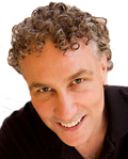Boundaries
Living Your Most Authentic Life
Personal Perspective: The truth will set you free.
Updated June 28, 2024 Reviewed by Gary Drevitch
Key points
- Living authentically means all of our actions are guided by truth.
- Everyone is born authentic, but socialization causes us to conform.
- Fears and limiting beliefs can hinder living authentically.

When I first started speaking professionally I would open every speech with five to ten minutes of comedy. I did this partly because I enjoy making people laugh, but more so because I didn’t feel my speeches offered enough value without it for me to be paid. In other words, I didn’t believe I was good enough. Then a client said to me, “Your opening is funny but it’s not necessary; your core message is very powerful and the best thing you have to say.” It didn’t happen right away, but eventually I came to realize she was right: My message could stand on its own, and I didn’t need to dress it up in humor.
It was back in high school that I created my funny-guy persona. I would make humorous quips in class to get my classmates to laugh, but not often enough to irritate the teachers; I wanted them to like me too. I thought it would make me popular, or at least immune to bullying. I thought it was working, but what actually made me popular was showing interest in people when I talked with them. Unfortunately, I couldn’t see that at the time, so I continued with the funny guy persona for many years. Okay..., I still do it, but I’m finally coming to an understanding of why.
I Was a People Pleaser
It’s part of my persona to be a people pleaser. My mother raised me that way. She was narcissistic and demanded a lot of attention, and when she didn’t get her way, she made everyone around her miserable. Everything in our household revolved around my mother: her interests, her needs, her goals. No one was allowed to have emotions but Mother. I wasn’t allowed to be angry or sad. Oh, but I was allowed to be funny.
I quickly learned that love came with a price tag: achievement. If I wanted Mother’s love and attention I had to earn it. I recall during my first year in school breaking down in tears when I couldn’t answer a question or solve a problem on a test. I grew up learning that love was conditional. Whether it was a blue ribbon for winning the 100-yard dash, or becoming an Eagle Scout, every scrap of approbation I received garnered a moment of precious loving attention and motivated me to strive for more.
She was also manipulative and lacked boundaries. She would frequently start crying abruptly and wail, “Nobody loves me!” which was my cue to rush over and assure her that I loved her. This led me to develop a Rescuer persona; I didn’t know how to set boundaries with the people in my life.
I Learned to be True to Myself Incrementally
Over time I slowly came to understand that I needed to be true to myself. It was never a complete revelation, but was triggered incrementally by specific events. As I’ve written before in this space, I played high school football not because I enjoyed the game, but because I wanted to get girls interested in me. The result was a severe injury that almost cost me a leg. It was a painful lesson that I only partially learned because I repeatedly pursued jobs, relationships, and even leisure activities for the wrong reasons. Among those was abandoning my lifelong dream of being a fiction writer when I agreed to become a partner in my ex-wife’s business—a job that I truly hated, and that no amount of hard work and diligence could overcome. (See my previous post.)
Then, two years ago, a friend of my mother’s helped me confirm the facts of my origin; I had an epiphany when she said to me, “I believe everyone should know the truth so that they can live their most authentic life.” Those words really stuck with me because I never thought of them together like that.
I have written about being true to yourself, and I’ve written about being authentic, but for the longest time I didn’t realize I was not living an authentic life. We are so indoctrinated, propagandized, and socialized that we don’t know who we truly are. Each of us is born authentic, but as we grow up we face constant social pressures to conform, fit in, or simply go along to get along to the point that our true selves are suppressed, along with our natural curiosity and creativity that could help us find our true selves.
Recovering the "Real" Me
Now the trick is recovering who I truly am. This is where my shadow work—a method of uncovering and healing repressed emotional wounds from the past that hold us back in the present—can help me.
Living authentically means all of our actions are guided by truth. Sometimes we know when we are living a lie. Other times we don’t because we are living behind a protective mask or persona. We may have created that protection in childhood to shield us from harm or trauma that no longer exists in adulthood, but our subconscious mind is still operating on the old childhood software. Alternatively, it may be that the words of our parents, on whom our lives were once dependent, still hold authority over us via our inner dialogue. Finding these fears and limiting beliefs is when re-parenting your inner child can help uncover what is holding us back, and enable us to move forward authentically.
Living authentically can also mean expanding your consciousness and living with purpose. Expanding consciousness is about removing emotional blocks and limiting beliefs so that you can become aware of your authentic self—i.e., what you genuinely like, desire, enjoy, or care about. In brief, your purpose. Meditating, journaling, and living in the present are excellent ways to expand consciousness.
A fulfilling life lived authentically in truth means we are pursuing knowledge and activities that engage our natural talents and make us happy. A good method for finding your purpose is to follow your joy. When you feel joy, it is such a powerful emotion that it speaks truth from the depths of your subconscious. Now that is what living an authentic life is about.
References
The Study of Authenticity (Positive Psychology Series #3) - https://healthypsych.com/the-study-of-authenticity/
Measuring authentic living from internal and external perspectives: A novel measure of self-authenticity - https://www.sciencedirect.com/science/article/pii/S2590291123003030




